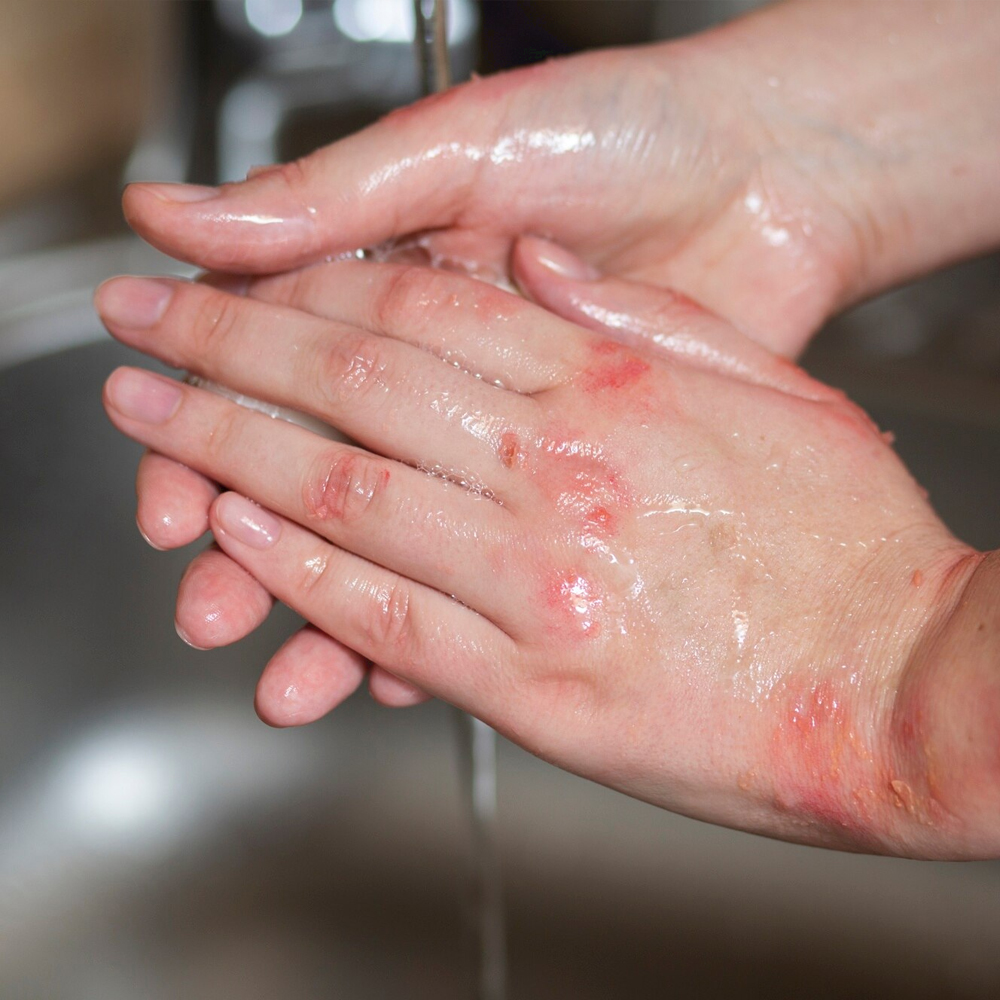
What is Eczema?
Eczema, also known as atopic dermatitis, is a chronic skin condition characterized by itchy, red, and inflamed patches of skin. It is commonly seen in children but can continue into adulthood or start later in life. Eczema can be a frustrating condition due to its chronic, itchy nature and its visual impact on the skin.
Symptoms of Eczema
Eczema symptoms can vary widely among individuals but generally include:
- Itchy Skin: This is the most prominent symptom, which can be severe, especially at night.
- Redness and Inflammation: Affected areas may be red and inflamed, with visible patches on the face, hands, wrists, neck, upper chest, and back of knees.
- Dry, Sensitive Skin: Skin may be extremely dry and sensitive to irritants and allergens.
- Rough, Leathery Patches: Chronic scratching can lead to thickened, leathery skin areas.
- Oozing and Crusting: Severe cases may exhibit oozing and crusting, particularly when infected.


